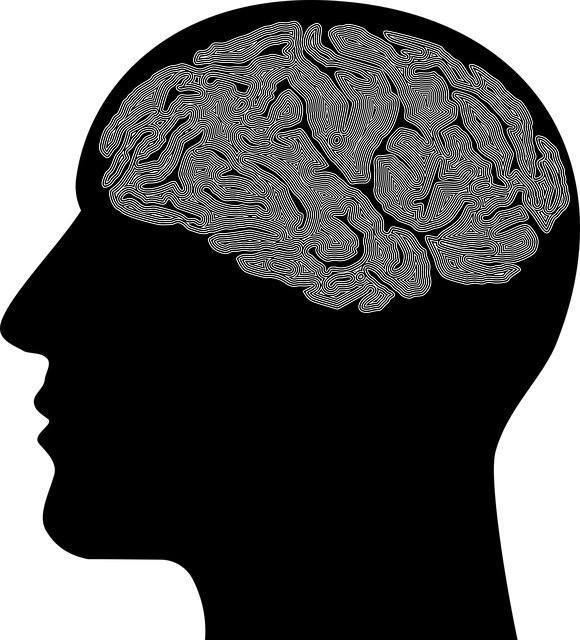Mindfulness-based psychotherapy combines mindfulness practices (meditation, breathing exercises) with traditional talk therapy to address thoughts, emotions, and overall well-being. This approach reduces stress, anxiety, and depression by fostering non-judgmental awareness and emotional regulation skills. Proven methodologies like MBSR and MBCT enhance psychotherapy outcomes, and research shows mindfulness can alter brain structure for better learning, memory, emotion regulation, and empathy. Incorporating mindfulness creates a safe, supportive environment, encouraging present-moment focus to navigate complex emotional landscapes effectively. While challenges exist, such as over-simplifying issues and requiring skilled therapists, mindfulness-based psychotherapy offers a game-changer for managing various mental health conditions, with a bright future ahead.
Mindfulness-based psychotherapy is a revolutionary approach that integrates ancient mindfulness practices with modern talk therapy, offering a comprehensive solution for mental health challenges. This article delves into the transformative power of this method, exploring its scientific foundations, various therapeutic techniques, and distinct benefits over traditional talk therapy. From cognitive behavior therapy (CBT) to mindfulness-based stress reduction (MBSR), discover how these practices are reshaping the landscape of mental health treatment, with real-life success stories and an eye towards future prospects.
Understanding Mindfulness-Based Psychotherapy: A Comprehensive Approach

Mindfulness-based psychotherapy is a comprehensive approach that integrates mindfulness practices into traditional talk therapy. This innovative method recognizes the profound impact of our thoughts and emotions on overall mental health. By encouraging individuals to focus on the present moment, rather than dwelling on past experiences or worrying about the future, mindfulness offers a powerful tool for managing stress, anxiety, and depression.
The core principle lies in developing awareness – observing thoughts and feelings without judgment. This cultivates a deeper understanding of one’s mental processes, enabling individuals to respond mindfully rather than reacting impulsively. Through regular meditation, breathing exercises, and other mindfulness techniques, patients gain increased self-awareness and emotional regulation skills. This approach has proven effective in various forms, including Mindfulness-Based Stress Reduction (MBSR) and Mindfulness-Based Cognitive Therapy (MBCT), offering new hope for those seeking to improve their mental health psychotherapy outcomes.
The Science Behind Mindfulness and Its Impact on Mental Health

The science behind mindfulness explores how conscious awareness and attention to the present moment can profoundly impact mental health. Research has shown that mindfulness practices, such as meditation and breathing exercises, reduce stress, anxiety, and depression by regulating emotional responses and promoting a sense of calm. Neurological studies indicate that mindfulness can actually alter brain structure, increasing density in areas associated with learning, memory, emotion regulation, and empathy.
This cognitive shift towards present-moment awareness enables individuals to develop a healthier relationship with their thoughts and emotions, leading to improved mental health psychotherapy outcomes. By fostering non-judgmental observation of internal experiences, mindfulness practices empower people to respond rather than react to stressors, thereby enhancing emotional resilience and overall well-being.
Types of Mindfulness Therapies: From CBT to MBSR

Mindfulness-based psychotherapies have gained significant traction in recent years, offering innovative approaches to addressing a range of mental health concerns. These therapies blend traditional psychological techniques with mindfulness practices, such as meditation and present-moment awareness. One of the most well-known is Cognitive Behavioural Therapy (CBT), which incorporates mindfulness strategies to help individuals identify and challenge negative thought patterns. By encouraging clients to focus on their immediate sensations and thoughts, CBT empowers them to manage anxiety, depression, and other psychological issues more effectively.
Another prominent example is Mindfulness-Based Stress Reduction (MBSR). This program teaches participants structured meditation techniques, along with body scans and mindful movement exercises. MBSR is designed to enhance one’s ability to stay present, reduce stress, and improve overall well-being. Both CBT and MBSR have been extensively researched and proven effective in clinical trials, underscoring the power of mindfulness in psychotherapy to transform lives and promote mental health.
How Mindfulness Psychotherapy Differs from Traditional Talk Therapy

Mindfulness-based psychotherapy is a distinct approach that differs from traditional talk therapy in its focus and techniques. While conventional therapy often involves exploring past experiences and emotions, mindfulness centres on the present moment, teaching individuals to observe their thoughts and feelings without judgment. This shift in perspective empowers clients to develop a deeper awareness of their mental health, fostering a sense of calm and emotional regulation.
In traditional talk therapy, the therapist might delve into a client’s history and explore past traumas or stressors. In contrast, mindfulness psychotherapy encourages active participation through meditation and mindful breathing exercises. These practices help individuals cultivate an enhanced sense of self-awareness, enabling them to navigate life’s challenges with greater clarity and resilience, thereby improving overall mental health.
Benefits of Incorporating Mindfulness in Mental Health Treatment

Incorporating mindfulness into mental health treatment offers a myriad of benefits for both therapists and clients. Mindfulness-based psychotherapy enables individuals to develop a greater awareness of their thoughts, emotions, and bodily sensations, fostering a deeper understanding of themselves. This heightened self-awareness allows for more effective navigation through complex emotional landscapes, leading to improved mental well-being.
By integrating mindfulness practices into sessions, therapists create a safe and supportive space where clients can explore their experiences without judgment. This approach encourages folks to embrace the present moment, reducing rumination on past events or anxiety about the future. Such a focused, non-judgmental state enhances the therapeutic process, making mental health psychotherapy more accessible, engaging, and ultimately effective in treating a range of psychological issues.
Implementing Mindfulness Techniques: Tools for Therapists and Clients

Implementing Mindfulness Techniques in mental health psychotherapy offers a powerful set of tools for both therapists and clients. These techniques, rooted in ancient meditative practices, help individuals cultivate present-moment awareness, a key aspect of improving emotional regulation and reducing stress. Therapists can incorporate mindfulness through guided meditations, body scans, or simple breathing exercises during sessions to create a safe and supportive environment where clients feel encouraged to explore their thoughts and feelings without judgment.
For clients, learning these techniques empowers them to manage their mental health proactively between therapy sessions. Regular practice allows individuals to develop a deeper understanding of their emotional responses, fostering self-compassion and resilience. By integrating mindfulness into psychotherapy, therapists can enhance the therapeutic process, promote client engagement, and potentially accelerate progress towards improved mental well-being.
Challenges and Considerations in Mindfulness-Based Practice

Mindfulness-based psychotherapy, while gaining popularity for its potential benefits in treating various mental health conditions, comes with its own set of challenges and considerations. One significant challenge is the risk of over-simplifying complex psychological issues. Mindfulness practices, though powerful, may not be a universal solution for all mental health concerns. It’s crucial to recognize that different therapeutic approaches cater to diverse client needs, and mindfulness should be integrated thoughtfully as a complementary tool rather than a standalone treatment.
Additionally, ensuring proper training and supervision for therapists is essential. The effectiveness of mindfulness-based interventions heavily relies on the therapist’s skill in guiding clients through these practices. Therapists need comprehensive training to navigate potential risks, such as triggering certain reactions or leading to counterproductive outcomes. Effective implementation requires a nuanced understanding of both mindfulness techniques and the underlying psychological principles to tailor these practices for individual client needs in mental health psychotherapy.
Real-Life Success Stories: Transformative Power of Mindful Psychotherapy

Many individuals from diverse backgrounds have shared remarkable success stories after incorporating mindfulness-based psychotherapy into their lives. These real-life experiences highlight the transformative power of this approach in addressing various mental health challenges. By cultivating present-moment awareness and non-judgmental acceptance, clients have reported significant improvements in managing anxiety, depression, and stress-related disorders.
Mindful psychotherapy encourages individuals to develop a deeper understanding of their thoughts and emotions, fostering a sense of self-compassion and resilience. Through regular practice, patients have been able to navigate life’s complexities with greater ease, enhance their overall well-being, and improve relationships. These success stories not only validate the effectiveness of mindfulness-based approaches but also inspire hope for those seeking to transform their mental health journey.
Future Prospects: Evolving Role of Mindfulness in Clinical Settings

The future prospects of mindfulness-based psychotherapy look promising, as researchers and clinicians continue to explore its potential in various mental health settings. This evolving approach promises to deepen our understanding of how mindfulness can enhance traditional therapeutic techniques. By integrating mindfulness practices into clinical routines, therapists can offer patients more holistic support, helping them develop resilience against stress and emotional turmoil.
As the field advances, we may see further refinement of existing mindfulness-based interventions, tailored to specific mental health conditions. The adaptive nature of this approach allows for personalized care, catering to individual needs within a structured framework. This evolution is likely to bring about more effective outcomes in psychotherapy, ultimately improving the quality of life for those seeking treatment for their mental health concerns.
